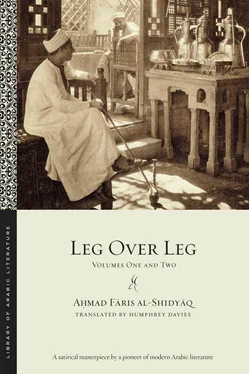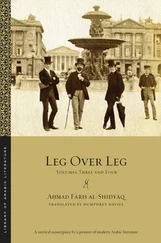CHAPTER 20: MIRACLES AND SUPERNATURAL ACTS
2.20.1
The aforementioned Bag-man had living with him a fresh-faced, comely serving girl from his own country. When he resolved to flee, he decided to leave her in his house to look after his things, refusing to take her with him because he was married to a woman less beautiful than she, it being the custom in the lands of the Franks for maids to be, for the most part, superior to their mistresses in form and beauty, though inferior in knowledge and education. It therefore occurred to the wife that, should she fall into the trap before he did, her husband might take the little maid into his bed and find her more to his liking. She recalled too that the first thing a girl learns from her mother before she gets married is how to prevent anything that might lead her husband to do without her, in her presence or in her absence, which is why most Frankish women give their husbands their pictures, even if they be ugly, to wear inside their shirts, or locks of their hair, even if it be red, to wear in a ring.
2.20.2
Then another issue arose, to wit, that if the maid stayed on in the house alone, she would be exposed to the danger of someone climbing the wall to get at her by night, in which case the unthinkable would come to pass, and the once cold oven be heated , broken would be the bone that once was set and turned again the tide that had retreated , the well once dug would be choked with silt, and what had been stored would be depleted , the fallow would be turned, the spells that had protected deleted , the seam that had been sewn would be unpicked , the pinhead stand erect , the pipe once narrow be rebored , the grain spilt from the silo where it once was stored , the swift, headstrong she-camel be broken to the rein , the golden table cleft in twain , the cairn o’erthrown , the trumpet blown , and, as a result, the hornet’s stinger torn . He therefore saw fit, after first raising his hands to the Almighty in prayerful invocation, to add to her as reinforcement a thin little chit of a man of his country, in the belief that he’d be incapable of performing any of the acts that have drawn in their wake the preceding plethora of rhymes. This is one of a number of scandalous misconceptions that have become widespread, namely that people generally think, without first checking with women or taking their testimony into account, that the thin man isn’t up to what the fat man can do; they’d be well advised not to be so opinionated.
2.20.3
The thin man thus stayed with the maid in the utmost felicity. As for the Baguettes, the one who’d bagged them up (i.e., the one who’d raised them) entrusted their care to that clever man and instructed him to forbid them to leave the house and not to let any of their relatives enter to see them and to employ a man to buy them what they needed from the outside and to accept nothing from him until he had washed it in vinegar, censed it with wormwood, and done the other things that Franks conventionally do to keep away whatever may bring the plague. This agent was a famous scholar of his nation who had, at the beginning of his life, been an infidel, without belief in any religion, despite which he was of noble character and excellent morals. His unbelief, however, had stood in the way of his making a living, and he’d been forced to join sides with the Bag-men of his country, who, delighted at his having found his Saviour , bestowed upon him every favor . His lighthearted spirit now turned somber and became prey to devilish insinuations and delusions to the point that, in the end, he believed himself capable of performing extraordinary acts and miracles, for a chance to practice which he was always on the lookout.
2.20.4
It now happened that the servant who bought the supplies for the house died of the plague. When the gravediggers came to carry him away, the agent prevented them from entering, and they were afraid to oppose him because he was a Frank, the Franks being regarded by the Egyptians with excessive respect. The man then proceeded to a place where he could be on his own and went down on his knees, praying to the Mighty and Glorious to give him evidence of the truth of his belief. Then he opened the door, came out, threw himself on top of the body of the deceased and put his mouth to his ear, crying, “ʿAbd al-Jalīl”—the dead man’s name—“I call on you in the name of Christ the son of God to return from the darkness of death to the light of life!” He cocked an ear to hear the reply, but no one answered, so he gestured to the gravediggers to be patient and went back to the same place in which he’d prayed the first time and changed his kneeling posture so that his mouth was now between his legs while he mumbled his prayers, after the manner of the Prophet Ilyās when he prayed for the rain to descend after killing the prophets of Baal (who were four hundred and fifty in number, according to 1 Kings 17). There was, however, a difference between the two praying persons, in that the prophet prayed thus after a killing, whereas our man prayed before a resurrection. It would have been more appropriate if he’d carried ʿAbd al-Jalīl up into a loft as the aforementioned prophet did with the son of the widow who had been sustaining him, his prayer to God to resurrect the man being, “O Lord my God, hast thou also brought evil upon the widow with whom I sojourn, by slaying her son?” 665etc.
2.20.5
Next, the man spread out the arms of the corpse to make a cross, sprang happily to his feet, and made haste to throw his body onto that of the deceased, repeating his earlier words in its ear. When no one answered him and he saw that the dead man was still lying there with his mouth open and his eyelids closed and hadn’t got up and walked around and about and hadn’t sneezed seven times as did the widow’s son raised by the Prophet al-Yashuʿ as mentioned in 2 Kings 4, he went to the kitchen and ordered the cook to make him some broth on the double. When the broth was poured, he took it to ʿAbd al-Jalīl and started emptying it down his throat, though the latter was too busy to pay attention as he was talking to Nākir and Nakīr. When all his efforts failed, he ordered the gravediggers to take him away, saying, “It’s not my fault I didn’t manage to resurrect him, it’s his.” Then he went to the Fāriyāq’s room and said to him, “Excuse me, friend, for failing to resurrect the servant, but the time of resurrection is not yet come. Still, I shall not weaken in my faith that I shall do it next time, God willing.” When the Fāriyāq heard this, he lost his composure and his blood rose in fury and sorrow, and on that same day the disease that was making the rounds afflicted him, a ganglion the size of a citron appeared in his armpit, he became feverish, and he got a painful headache. The agent, though, was unaffected, which is one of those mysteries that physicians cannot understand.
2.20.6
During his illness, the Fāriyāq pondered his situation, as a lone stranger with no companion to bring him cheer , no doctor to give him care . He said to himself, “If I should die now, who will benefit from these books of mine that I have spent so many nights in copying? True, death is hard and hateful under any circumstances, but for a young man like me to die in a strange land is harder still to bear. I have been afflicted in this city, praise God, with every kind of sickness that bears the tint of death. If God should now grant me a reprieve before my time is up, let me not leave this world without the solace of a son and heir, even if my worldly relics consist of nothing but my books. How can it be otherwise when Abīshalūm, son of Our Master Dāʾūd, built himself a wall 666to be remembered by after his death because he had no children. Let me then marry; if I have no children, there are plenty of bricks in Egypt. God make smooth the path! Your aid, O Generous One, O Compassionate, O Merciful!”
Читать дальше












